The World Nomads Podcast: Philippines
Hear about village life on the islands - stunning treks - incredible dive sights and the street food dish testing the toughest of stomachs.
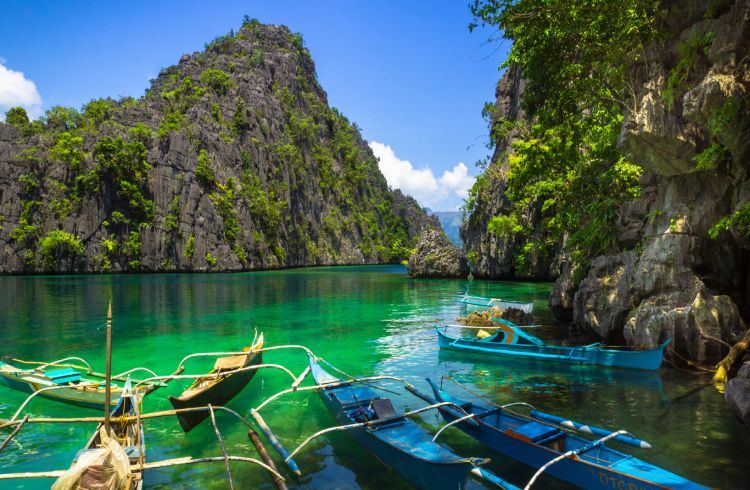 Photo © iStock.com/Nathan_Allen
Photo © iStock.com/Nathan_Allen
Listen Now
Episode 16 Philippines
The Philippines is a southeast Asian country in the Western Pacific. Its capital Manila is famous for its waterfront promenade and centuries-old Chinatown, and they say it's a great place to be a beach bum.
What's in the Episode
00:12 - Welcome
00:18 – Quiz Question
01.36 – Sarah and her husband are on a 20-month long honeymoon which included The Phillippines - “…we went to these very remote islands, some of which are completely uninhabited, there's absolutely nothing on them, and then others have small little villages scattered about “- Sarah Puckett
09:56 – Tom Rogers from Adventure In You
15:21 – Checking in with our world nomads
16:47 – Street food and the dish that tests the most cast iron of stomachs - “…Yeah, it's the kind of stuff that you see on fear factor, not everyone can eat it. Not even Phillipinos” - JB Will Fly For Food
24:00 – Travel News
26:34 - Winners of the World Nomads 2018 Summer Road Trip
31:16 – Quiz Question Answer
32:04 – What’s next in Episode 17
Who's on the Show?
Sara and her husband Tim are on a 20-month honeymoon which they are documenting in their blog, Organized Adventurer and Sarah has written about village life in the Philippines and shares her story with us in the episode.
Tom Rogers runs Adventure In You with his partner Anna, a blog with over half a million readers each month. They offer guidebooks, travel blogging advice, and of course feature the best destinations for adventure travel, including the Philippines.
JB is a World Nomads contributor. He and his wife Renee, are travel eaters. They have a blog called Will Fly for Food, for the gastronomically inclined. In this episode, JB helps us navigate street food in the Philippines.
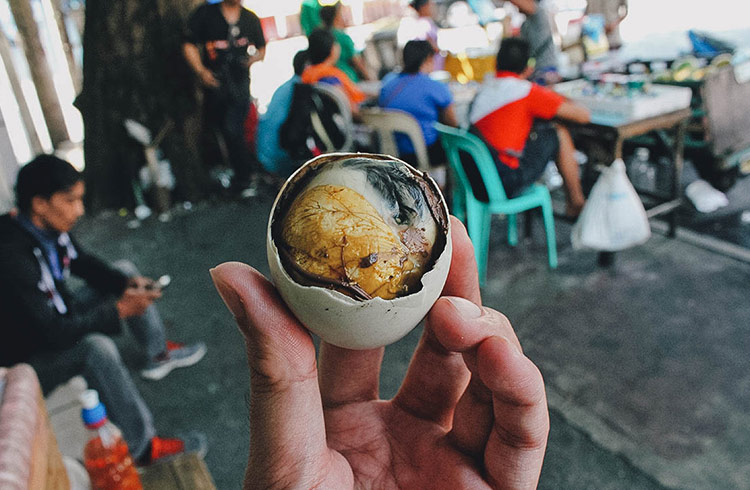
Balut. Photo credit: JB Macatulad
Resources & Links
As mentioned in Travel News the first non-stop flight from Australia to the UK – what’s this journalist’s verdict?
Scholarships Newsletter: Sign up for scholarships news and see what opportunities are live here.
Follow World Nomads on Instagram for the latest stories, and #WorldNomads for your chance to be featured.
Want to Talk to us?
We want to hear from you! If you have any travel insurance questions to Ask Phil, want to give us feedback on the episode, or have suggestions for topics you'd like us to cover, email us at podcast@worldnomads.com
Sign up for Podcast News
Explore your boundaries and discover your next adventure with The World Nomads Podcast. Hosted by Podcast Producer Kim Napier and World Nomads Phil Sylvester, each episode will take you around the world with insights into destinations from travelers and experts. They’ll share the latest in travel news, answer your travel questions and fill you in on what World Nomads is up to, including the latest scholarships and guides. The World Nomads Podcast is not your usual travel Podcast. It’s everything for the adventurous, independent traveler. Don’t miss out. Subscribe today.
Speaker 1: Welcome to the World Nomads Podcast, delivered by World Nomads, the travel lifestyle, and insurance brand. It's not your usual travel podcast, it's everything for the adventurous independent traveler.
Kim: Well, it's episode 16. Welcome, I'm Kim you're about to meet Phil and Phil's going to tell us which destination we're visiting this episode.
Phil: Well, hello there. This episode we're heading to the Philippines, Southeast Asian country in the Western Pacific, and there are 7000 islands that make up [00:00:30] the entire country. Its capital is Manila, which is a bit bland. Get it, Manila? And it's famous for its waterfront promenade and centuries-old Chinatown, and they say it's a great place to be a beach bum.
Kim: I would never have thought about that, but we will explore that in this episode. We'll look at the best islands for adventure in the Philippines, we'll also speak with JB from Will Fly for Food. He and his wife love food so much. It plays a big role in their travels decisions. So, we'll speak to [00:01:00] him specifically about street food, which coincides with an article that he's written for us, the World Nomads, in which he suggests we keep an open mind. Phil's not so convinced when trying Phillipino street food. And we've surprised the winners of the World Nomad's summer road trip plus travel news, and Phil what's your quiz question?
Phil: Alright, so about the Philippines. Do you know why the Philippines is called the Philippines? That's my question and we'll have the answer at the end of the episode.
Kim: We first met Sarah in our episode on South [00:01:30] Korea, which was episode 12 by the way if you haven't checked it out at iTunes. She and her husband are on a 20-month honeymoon and they've got a blog out, 21st Century Odyssey, and Sarah is about to tell us about her time in the Philippines. But when we first chatted, I asked if they'd had a fight yet. Like seriously, the honeymoon that goes for that long.
Phil: No.
Kim: That's testing the relationship, it's testing the relationship. Well, I'm here to report that they have and Sarah, what was it about?
Sarah: The gist of it was basically that we were [00:02:00] going to watch a show on my tablet and I was sitting on one end of the bed and Tim was sitting down at the foot of the bed, near where the power outlets were so he could charge his phone. And, he wanted to use his phone as he was charging it while we watched the show and I pointed out well you're down at the foot of the bed, you're not going to be able to watch the show because you're not going to be able to see the screen. He was like, "Well, no, no. That's okay. I'm good to just listen to it."
And I was like, "No we can just wait until you're done [00:02:30] charging your phone and then we'll watch it together." And he was like, "No I want to listen to the show."
And I was like, "Well, if you just listen to the show and don't watch the show then I'm going to end up having to explain to you all of the stuff that's visually going on and then it's less fun for me."
And then, eventually, we ended up arguing whether or not we were going to watch the show or not, at this time and Midway through, Tim was like, "Well, now you can tell World Nomads we've finally had our first fight."
Kim: Oh, that's crazy. [00:03:00] Isn't it funny when you look back on those silly things. It's just-
Phil: So, who won?
Sarah: Neither of us, we ended up not watching that show. Then, I ... One of us, accidentally, it was actually me, I accidentally deleted it from the tablet.
Phil: In a fit of ... [crosstalk 00:03:14]
Kim: Well, that's [inaudible 00:03:16] got seven to eight months to go, I'm sure it will happen again, but as long as you can sort it out, that's great. Now, were you ... Your time in the Philippines, was that as part of your 21st Century Odyssey?
Sarah: Yes, that was part of our [00:03:30] honeymoon. That was back in February.
Kim: You spent your time sailing around in a bangka, which is ... Could you ... Just describe it, because it's basically an outrigger, isn't it?
Sarah: Yes, yeah. It's a ... So, traditionally, there are these wooden sailboats, nowadays, they've been modernized and they have motors to help them move along more efficiently. But, they still have the same structure of being wooden bamboo. The one that we went on was quite large, it was made to [00:04:00] accommodate up to 30 tourists, as well as, 10 crew and the captain. But, they have them ... You see them all over the Philippines and they range in size from just tiny little ones that would hold maybe four or five people to the larger ones like what we were on.
Kim: So, you spent your time traveling in the bangka staying in rural villages. Tell us about that experience.
Sarah: Sure. We booked with a tour company that does these excursions going from [00:04:30] El Nido to Coron and Palawan, which is on the western part of the Philippines. El Nido and Coron are both super popular touristy destinations. They're beautiful, so it makes them so that people flock there.
But, if you go there and you do the day trips to the islands that are immediately around there, you're just going to see a bunch of other tourists. It's a very nice experience, but it is very crowded and it certainly isn't that feeling of being on a deserted island. [00:05:00] You lose a bit of the magic of it that way. But, being able to go on this trip from El Nido from Coron we went to these very remote islands, that ... some of which are completely inhabited, there's absolutely nothing on them, and then others have small little villages scattered about. The villages have a pretty small population, just maybe 100 people or a couple 100 people and most of the people in these villages are all related. It's a few small, well a few large extended [00:05:30] families that make up these communities.
Phil: How did they receive you? Were they happy to see you? What sort of ...
Sarah: Yes, that's a very good question. So, we were very welcomed by the locals that we interacted with. I think one thing that we had to our advantage, is that because we were part of this guided excursion that was being led by locals who were raised, and grew up, and still live [00:06:00] in these villages, we immediately had this local connection through our crew and our captain. That made us more welcome and more invited into these very remote areas; where I think if a tourist or a traveler just showed up in their own boat and walked in it would probably be pretty alarming to them. But, because we were coming as guests of their own family members we were very welcome.
Phil: But was it an authentic experience? Sometimes you get, [00:06:30] we call it around here, the Disneyfication of some of those things. You go to places and it's all been set up for visitors. Was that-
Kim: Was it genuine?
Phil: Yeah, was it genuine?
Sarah: We both thought that it was very genuine and everyone on the experience that we were with felt that it was a very genuine experience. They weren't putting on a show for us at all. We show up and they're very much just living their daily lives. They're very nice and welcoming, but they're also ... Not [00:07:00] that they don't care that we're there, but they-
Phil: They're busy.
Sarah: You know, they just continue to
Phil: They're busy. I'm busy
Sarah: Yeah, yep. They were very nice and when one of our guides would come and introduce us they would chat with us for a few minutes, but then they would just go back to their lives. When we showed up on one of the islands, some of the villagers were busy preparing a pig for dinner. There was the body, the carcass of the pig, laying out with all of his intestines in [00:07:30] a pile beside him. The pig was covered in blood and they were just busy doing that. They kind of nodded to us, waved at us, said hello, and then carried on butchering the pig.
Kim: So, best experience as part of that traveling around islands?
Sarah: Honestly, I think it was getting to know the crew and the guides that we had on the boat with us, because these were all young men and woman as part of the crew, as well, who were raised and grew up in these really rural communities. Most [00:08:00] of them didn't speak English until they started working on these boats. They would just tell us about what their lives were like prior to coming to work for this company that does these trips from El Nido to Coron. They would be telling us about the fishing culture there and how most of the men in these villages become a fisherman and they do this starting at a pretty young age. It's very grueling difficult work, where they'll be gone for several days at a time out on fishing trips. So, it pulls [00:08:30] them away from their homes and their families, but then if they are fishing back at home they'll be setting traps underwater using this kind of makeshift scuba diving system.
Phil: Look, the Philippines gets a lot of bad press. Their very strict president, cops, some mentions for some of the things he's doing there, but a lot of people perceive the Philippines as being a dangerous place. Was that your experience?
Sarah: Not at all. We [00:09:00] felt very comfortable the entire time that we were in the Philippines. Granted Tim and I are both pretty well traveled and we've been in places that have that kind of reputation previously. But, we spent a couple of days in Manila, which I think, of most of the places in the Philippines, probably has one of the strongest reputations for being a dangerous spot. We felt pretty comfortable walking around the city there. I don't think we would have gone out alone [00:09:30] at night through some of the areas, but by and large, we were quite comfortable.
Kim: You have written about your experiences in the Philippines for World Nomads, so you're really part of the team now aren't you.
Phil: That's it. And the next time you're having an argument call us up in the middle of it, okay?
Sarah: We will do that.
Kim: The Philippines offers everything from top surfing breaks and stunning trips to spectacular dive sites. Tom Rogers runs Adventure In You with his partner Anna, a blog that has half [00:10:00] a million readers each month. Now they offer guidebooks, travel blogging advice, and of course feature the best destinations for adventure travel, including the Philippines. Tom.
Tom: The Philippines is a full adventure. Me and my partner. My partner's actually from the Philippines. When we met and when we started dating we explored all the local islands and the rural, the more off the beaten paths of islands.
We rented a motorbike in Coron and
So, this is one of the adventures we went on we got the bike, road off down Coron and we were actually riding for hours, I'm not sure how long exactly, and then when it was starting to get tonight there was nowhere to be found. We couldn't find any hotels, couldn't find any Airbnb's. Obviously, it's not Airbnb's down there, but no, there was just nothing.
Then [00:11:00] we rung the guy who gave us the bike and he said, "Yeah, my brother has a house there he'll be happy to put you up." And they're obviously really friendly. So, we found this guy's house. It was super local. There were zero shops. We couldn't even get food, that's how local we were at this point. And this guy was lovely, the local guy was amazing. He welcomed us into his home. He put up a bed for us and everything and then we stayed with him for a few nights. [00:11:30] We stayed with him for a few nights and what was really, really crazy is in the day he was trying to show off the area and he was so nice. He was so proud. And we rented this ... He basically gave us wood kayak to take out and we went out on it and that was day one.
Then, by day two we had run out of food, and I mean like fully run out of food. There was nowhere we could go and buy any. So he was like, we'll go and fish. We'll try and fish for our own food. Then, after a day we hadn't caught [00:12:00] any fish, he was really sad and like, I'm so sorry. He felt bad and it was an incredibly humbling experience to be with a local family. We just ate rice with them and they took us off and he owned this little bit of land on a different island, so we went exploring that. So, that was a really, It was a different type of adventure. It was more really local and off the beaten path. It's not something you find in books because it was kind of ... because of we just kind of went out there.
But that was [00:12:30] pretty epic adventure and we've also swum with this sardine run in Cebu, where you can go just snorkeling or you can dive if you like and then there's just thousands and thousands of sardines swimming around you, and that's an epic experience. Not kind of the traditional things that you read about.
Kim: Well, that's the whole point behind World Nomads. So, what are some of the best islands for adventure or for ... Let's kick off with snorkeling and diving.
Tom: Snorkeling and diving, I would [00:13:00] suggest, there are some amazing places around Cebu area and stuff. But, we've done a lot of diving around Palawan. Coron has loads of shipwreck, so for me, I would highly recommend going there. I love shipwreck diving. It was ... One of the dives we did was quite phenomenal. We got right into the ship, and these ships are massive some of them and as you're swimming through the ship it's like, obviously it's not what I ... I felt like I was inside the Titanic or some [00:13:30] big ship that sunk and we were kind of swimming through it. It's incredible and then there are all turtles swimming around you as well they are inside the ship going in and out. That was incredible, so I would recommend, yes going diving, really diving around those areas.
Kim: We'll share your story that you've written for World Nomads in our show notes and that includes some of the best islands for water sports, but you can also do some great trekking there.
Tom: Yeah, especially up north. North they've got all of the rice fields and trekking areas. It's a bit like, I don't know, I'm trying to find a [00:14:00] good comparison. But, yeah Sapa in Vietnam, which is up north past Hanoi. It's got all the rice fields and the local villages and stuff like that, and that's the same with up North Philippines as well. [Right 00:14:15] up there, as well, if you're a bit more experienced or want a bit more of an off-road adventure.
Kim: What's your travel philosophy, you and your partner? Sorry.
Tom: I guess we're not aiming to tick off countries, as such. [00:14:30] We don't have a goal to visit every single one of them. We're just going to keep adventuring until we're ready to stop and at moment in our next three, four, five years we can't imagine stopping. We're all about slow travel. We like to live and work in different places, traditional nomads lifestyle with some big adventures and we still have a lot that we want to do though. There's a lot of South America that we haven't traveled and Australia as well, so we'll be over that way.
Kim: Well, your philosophy [00:15:00] certainly suits with World Nomad, so appreciate your time.
Tom: Yeah, I was pretty excited about this, actually. I started using your travel insurance, when was it, I think after six months of first traveling. Then, obviously, when we started to [inaudible 00:15:12] that was who we were recommending. So, I was pretty excited to be on this.
Kim: World Nomads' Sebastian is living and working remotely for six months in South America. Not sure really how much work he's been doing if you keep an eye on his Instagram account. And he's been trekking with Ivan [Corey 00:15:29] and Drew.
In [00:15:30] this episode, he asked the group what advice they would give their younger selves.
Speaker 6: Ah man, the advice that I would give my younger self is to not listen to all of the other voices that tell you should be doing this you ... This is what it means to be successful. This is what you should be doing with your life because really all it comes down to is do what makes you happy.
Speaker 7: Yeah.
Speaker 6: Seek, that stuff that makes your soul come alive and everything else falls [00:16:00] into place. You'll find a way to make money. You'll find a way to get by.
Speaker 8: I would say if I was going back to talk to my college self, who was terrified to join the real world. I would say, it's not ... I've been working for about five years now and it's not so bad. Not only can you get a lot of enjoyment out of work, but you're also going to have a lot of time to do things like we're doing right now and take some time off and travel. This is my fourth opportunity in the last five years to take a over two-week vacation
Speaker 9: Don't [00:16:30] care so much about what other people think about you. Just do what is cool and fun to you. There's not going to be a point in your life where you're like, "Oh, I'm an adult." You're going to be a kid, you're always going to feel like a kid your entire life.
Kim: JB and Renee, they are travel eaters. They have a blog called Will Fly for Food, and it's a travel blog for the gastronomically inclined.
JB: Yeah, that's right.
Kim: Who isn't gastronomically inclined?
Phil: Who isn't?
JB: Yeah, true.
Kim: [00:17:00] You're currently living in the Philippines and you're putting an article together for World Nomads on street food in the Philippines. Can you take us through that?
JB: That's right. Yep.
Kim: What sort of things are we talking about?
JB: I focus on a few things. I thought about maybe which foods that foreigners would like. This is single [inihaw 00:17:17], which means [inaudible 00:17:19] food. It's like chicken, [inaudible 00:17:21], things like that. [inaudible 00:17:23] street for like fishbowls. Kwek is actually a fried quail eggs.
Kim: Yes, so [00:17:30] all those things aren't amazingly out of the box. Not like, Phil's been offered guinea pig before.
Phil: What should we really eat there JB, what should we really get into on the street?
JB: Well, the most notorious treat that we have is the embryo's, the balut, have you heard of that?
Phil: No, but I'm already gagging. Go on.
JB: Yeah, it's the kind of stuff that you see on fear factor. Duck embryo's, not everyone can eat it. Not even Phillipinos. So-
Phil: Is it crunchy? Or.
JB: It's not crunchy? [00:18:00] It's soft. You can see the chick, the duckling and its formed. There are no feathers though, or anything like that. But, yeah. Once you put it in your mouth it's soft and it's actually quite good.
Kim: We should apologize to vegans and vegetarians, because in our earlier chat in this episode, with Sarah. She spent a lot of time on the remote islands and she was a bit affronted by some meals that the villagers were cooking. One of them she described particularly was a pig and it had all the [00:18:30] entrails and everything everywhere.
Phil: Yeah, well they were just butchering the carcass, and they had all the entrails out. She was a bit confronted by that.
JB: In the Philippines, we tend to eat the whole animal, from snout to tail, even the entrails. And a lot of the entrails actually become street food. It's skewered and then grilled over hot coals. It's quite good.
Kim: So if you are a vegan or a vegetarian, what's on offer on the street?
JB: Filipinos are notorious meat eaters. It would be kind of hard here.
Kim: One of the things I enjoy about your blog is a list of ... [00:19:00] You call it the national dish quest. You've gone to all the countries that you've visited, and all the places that you've visited, which is ... Do you know off-hand how many?
JB: 20? I'm not exactly sure. It's over 20 but under 30.
Kim: But, a lot of places within those countries obviously. You talk about national dishes, but we get to Australia, Phil, and there
JB: That means that we've actually had it already. [00:19:30] We've actually tasted it.
Kim: OK.
JB: We're slowly working our way down that list and having everything.
Kim: There's a whole heap of dishes that you haven't tried.
JB: Actually, most of the things that we've tried are in Asia and North America. That's where we spend most of our time.
Phil: So, what have we got on there? What dishes?
Kim: Bat soup.
Phil: Bat soup?
JB: Haven't had that. I believe that's the national dish in Palau, I think.
Kim: Yes, that's right. Now in Dominica mountain [00:20:00] chicken. Is that a chicken that's raised in the mountains?
JB: I guess. Yeah, maybe free range chicken, native chicken. We have similar things here. It's leaner and the meat is tougher.
Phil: You've probably been asked this a couple of times. So, what's the best thing you've ever eaten?
JB: Ever eaten? My favorite food in the world is sushi. That's why I love to going to Japan. We try to go at least once every year. It's actually our goal to visit the whole country, every prefecture because a lot of [00:20:30] sections have their own specialties, which you really can't find anywhere else. There are so meticulous about how they make things. One restaurant specializes in just one dish and just do that [inaudible 00:20:39]. You're not considered a master unless you're doing it for ten years, or something like that. The quality is so high, I just love exploring it.
Kim: Just give us a couple more on your list that you'll be sharing with World Nomads. You mean Phillipino street food or just in general.
Phil: Yeah.
Kim: Yeah, Filipino street food.
Phil: See if you can get me hungry. Come on.
Kim: Not bat soup
JB: All right.
Phil: No embryos.
JB: No embryos. Okay, [00:21:00] we have this thing called
Phil: No, that's not working. No, no keep going-
Kim: I don't know. I think it's Australians.
Phil: I'm not an awful-
Kim: No, I'm not. I think it's
JB: Is that popular in Australia?
Kim: Well, I'm speaking broadly, but you would probably find older people would enjoy liver, kidney, brains.
Phil: A friend of mine recently wrote [00:21:30] on Facebook about eating lamb's brains.
Kim: No, you'd have to hide it in a sausage for me.
Phil: Come on. Come on. Keep trying. When are you going to get me interested?
JB: Okay, I'm going through my list right now. There's this thing called
Kim: A lot of travelers tend to steer away from the street food because they're [00:22:00] worried particularly in Asian countries that they'll get a dose of the squirts.
JB: I can kind of understand that, but in our experience, we've never had any ... Nothing's ever happened to us. Actually, it's weird because I was just telling Renee, how come whenever we travel we're always so gung-ho about street food and everywhere we go street food is street food there, but in the Philippines we don't because in our minds we think it's dirty, which is kind of unfair because everywhere else we eat, but not here. That's actually why I wrote that article, which I showed you before. I [00:22:30] wanted to dispel the myth that it is unhygienic. A lot of it is just in our heads.
Phil: But, do you follow any rules when you're traveling about street food? Do you try and follow some hygiene rules? Do you look for the busiest stall? Do you take hand sanitizer with you?
JB: Every place we visit is researched beforehand so I know it's a good place, it's popular. I figure a lot of people say it's good, then it must be good and it's safe.
Kim: Well, thanks for writing the article for World Nomads. We look forward to sharing it. There's a photo on your website is that you [00:23:00] eating some sort of worm?
JB: Yeah, that's me. That's in the Philippines. That's called Tamilok, it's actually ... It looks like a worm, but it's actually a clam. It eats wood, it lives in the mangroves in Palaw and it eats wood. It's actually quite good, yeah. It's very milky, it tastes like an oyster.
Kim: Thanks so much for chatting with us JB.
JB: Thank you for having me. Thank you so much.
Kim: So, no go on the balut, Phil, the fertilized duck egg?
Phil: No, I'm sorry. I can't do it. We were discussing this around the office the other day at lunch [00:23:30] time. It was how much would I have to pay you to eat one of those? No, can't do it.
Kim: No amount of money.
Phil: No amount of money.
Kim: No, couldn't do it. [Pearce 00:23:39] that works with us, said he could for a thousand. Isaac, who also works for World Nomads has actually tasted balut and not a fan.
Phil: Not a fan. We said, but have you done it? And, he's nodded his head and then shook it, no.
Kim: We will have a photo of a balut, plus links to the [00:24:00] blog in our show notes.
But what's travel news for this episode?
Phil: Okay, the pilots of the Vietnam Airlines Airbus A320 have been suspended after landing their aircraft on a runway that was still under construction. Do you ever think the flashlights from the trucks would have been ... Anyway, the flight from
Springtime in Nepal and that means the route to the top of Mount Everest is gonna be busy. The Nepal government has issued 346 permits to attempt the summit this climbing season with guides, Sherpas and what have you that means a procession of 700 or more people heading to the roof of the world. Interestingly, and I didn't know this, there are another 180 climbers who are attempting to reach the summit from the Tibet side. That used to be closed off, never used to be able to get in there because [00:25:00] of the China, Tibet debacle.
Anyway, the Chinese government is spending millions to encourage climbers to ascend the summit from their side including the construction of an Airport and hospital just a hundred and eighty kays away from the bottom of the mountain. Back over on the south side, the Ne pally side, getting to base camp is a 10 to 12-day trek, but in Tibet. The Chinese have constructed a sealed road that leads to within just a few kilometers of base camp at 5,200 meters.
Kim: What do you make of that?
Phil:A [00:25:30] road to-
Kim: Maybe you and I may be able to do what they are achieving.
Phil: I did base camp one afternoon. Yeah,
Hawaii wants to ban sunscreens containing certain chemicals because it's damaging the reef and marine environment. The chemicals are, said hiply in his best chemical professor voice, oxybenzone, that ones alright and octinoxate and they are in popular brands like banana boat and
A tea seller on an Indian train service has been fined for using water from the toilet. According to the Guardian, the vendor on the Chennai Hyderabad express was caught after a video was posted online of him emerging from the toilet with cans used to serve tea and coffee to passengers. A bit of flavor to the tea.
Kim: Yuck.
Thank you for that. That's travel news.
Over the past couple of months, we have been [00:26:30] running a hugely successful campaign called the world nomad summer road trip.
Phil: We are sending two winners and their travel buddies on the ultimate four-week summer road trip to either the US or Europe and they get to experience each destination by visiting local cultural and music festivals along the way. Plus, each winner and their companion will receive free flights, free travel insurance, van rental, itinerary planning some awesome travel gear and 6 thousand dollars in spending money for their adventure, pick [00:27:00] me, please.
Kim: Well, Phil and I are thrilled to be calling the winners Freya who is from Australia who is off to Europe and Dania from Illinois who will get to further explore the USA. Let's have some fun, Phil.
Phil: Okay.
Hey, Dania.
Dania: Hello.
Kim: It's Kim and Phil from world nomads just another loop, you've got to jump through.
Dania: Sounds great.
Kim: We have just got one concern with your entry. You have put down ... and we know there is a lot going on in your life. You
Dania: You guys are so sweet. Well after I talked to my husband about it yesterday, we have been apart for about two months now and we don't much travel together which is what I was talking to [crosstalk 00:27:54].
Phil: So you will take your husband, would you?
Dania:[00:28:00] I believe so, we haven't had an opportunity to go on an actual trip that wasn't spending five days visiting family in a very strategic order to make sure we meet everyone. But we haven't really gotten to wander together.
Phil: Like we said, we are concerned about your welfare and I have got a really big concern about this because you and your husband are going to be spending four weeks together traveling around a van. You have won.
Are you gonna kill each other in four weeks, you think or?
Dania: No, [00:28:30] may be but no.
Kim: You have won.
Phil: You actually have won.
Kim: Congratulations.
Phil: Were are you gonna go, where did you plan to travel, around the US?
Dania: Absolutely yes, there are so many places I haven't seen yes. We were talking about maybe hitting Florida, which is a place neither of us has been to and maybe just driving up the cost or going to the badlands up in South Dakota ... Oh, I am so excited.
That is tremendous.
Freya:[00:29:00] Hello this is Freya speaking.
Phil: Hey Freya, my name's Phil Sylvester I work at world nomads, how are you doing?
Freya: Good,
Phil: You got a minute to talk?
Freya: Yeah, I do.
Phil: About your entry, I have just got a couple of more questions to ask about the road trip entry. I know you are 19-years-old, do you have a drivers license?
Freya: Yeah, I do.
Phil: And you are aware you are of course that you are gonna need six [00:29:30] months validity on your passport. So I am just making sure you got all the license we need.
Freya: Yeah.
Phil: Alright, can you just hang on a second. I have got my colleague Kim, she just wants to ask you something as well.
Kim: Hi, I am from the emotional department here at world nomads just making sure that, if you were to win this trip that emotionally you would be intact. I know you said you wanted to take your mother, at 19 if she is not available and you go with your 22-year-old sister is there going to be an issue with being homesick or-
Freya: No, [inaudible 00:29:59].
Kim:[00:30:00] You have been overseas before?
Freya: Yes.
Kim: Would you like to go overseas again?
Freya: Yeah, I would.
Kim: Well congratulations, you are off to Europe.
Phil: You are the winner!
Kim: You are the winner!
Freya: Oh my gosh, thank you so much.
Phil: You are gonna get to Europe.
Freya: Wow, thank you so much.
Phil: You are trying to catch a train.
Freya: Yeah.
Phil: You are at the train station. Do a little dance on the platform.
Kim: Actually, yell out to everybody. I just won a trip to Europe. Can you do that for us?
Freya: I am on a train.
Kim: Does it matter?
Freya: This is so good, [00:30:30] I never won anything. This is great.
Kim: What did you think of my department [crosstalk 00:30:45].
Phil: I am just sitting here, gobsmacked.
Freya: Is that a joke?
Phil: Of course it is, we don't have an emotional department. You know what's wrong with the world today
Kim: Exactly, there is a company with an emotional department.
Phil: [00:31:00] Where do you think you gonna go, have you thought about where you might go?
Freya: I really want to go to Spain, thank you so much, guys.
Kim: Congratulations guys, a huge thank to our sponsors to the road trip is Toten Co, STA travel, order Europe and of course world nomads. Phil, it's that time of the episode, your quiz question.
Phil: Why is the Philippines called the Philippines? Ferdinand Magellan arrived in the Philippines in 1521 Spanish bloke, that started the 377 [00:31:30] year colonization of the Philippines by the Spanish and the islands were named for King Phillip the second of Spain. I approve.
Kim: King Phillip of course, this is your destination.
Phil: That's it.
Kim: This is your destination.
Well, that wraps it up, our episode on the Philippines. Please subscribe, write, share on iTunes, in fact, it's nice to see some writings going up their now and we are at five stars which is good. Google Play, Stitcher, find us on Spotify and iHeart radio [00:32:00] and also contact us by emailing podcast@worldnomads.com.Next, our feature destination Phil what is it?
Phil: It's Mongolia.
Kim: A super interesting place, we will see you then, bye.
Phil: Bye.
Speaker 1: The world nomads podcast [inaudible 00:32:14].
Related articles
Simple and flexible travel insurance
You can buy at home or while traveling, and claim online from anywhere in the world. With 150+ adventure activities covered and 24/7 emergency assistance.
Get a quote



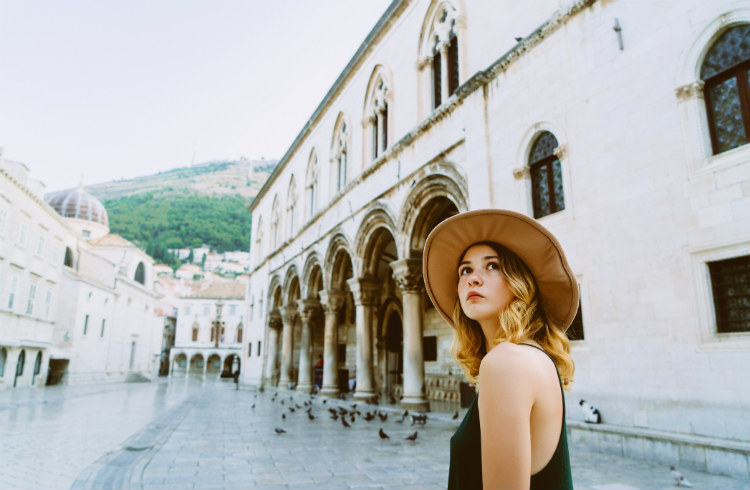
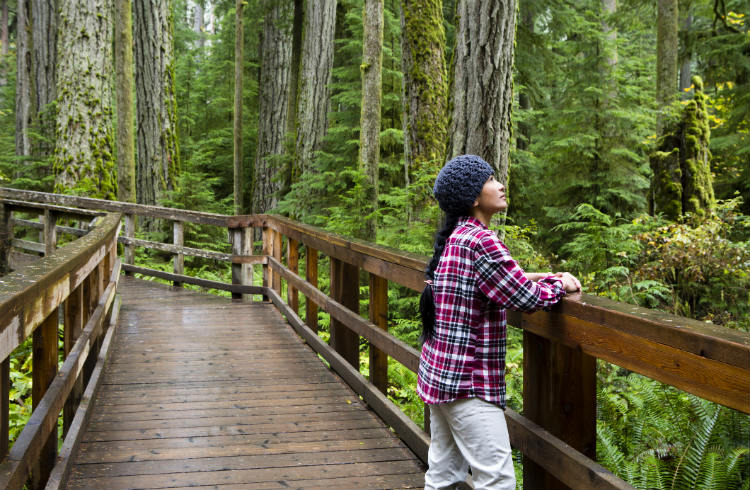
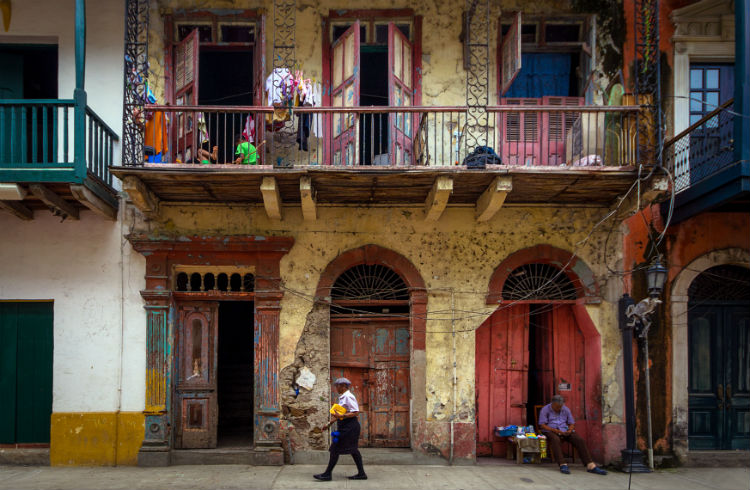
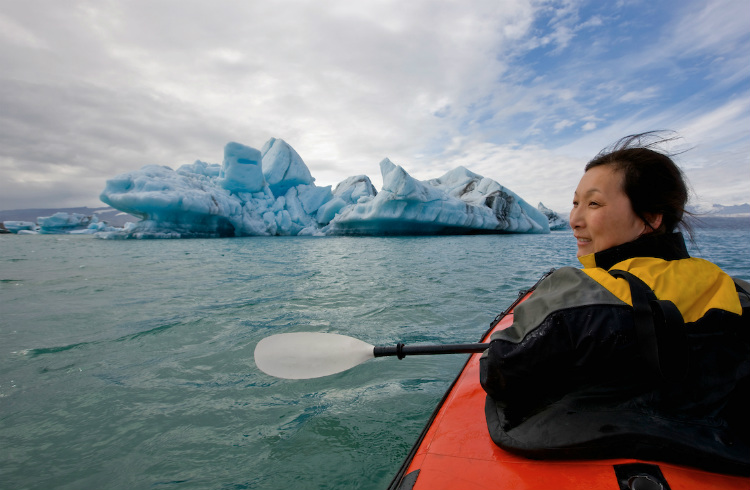
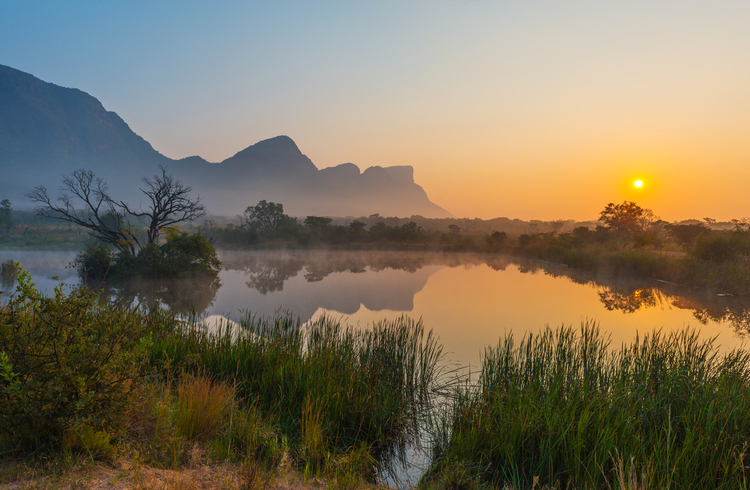
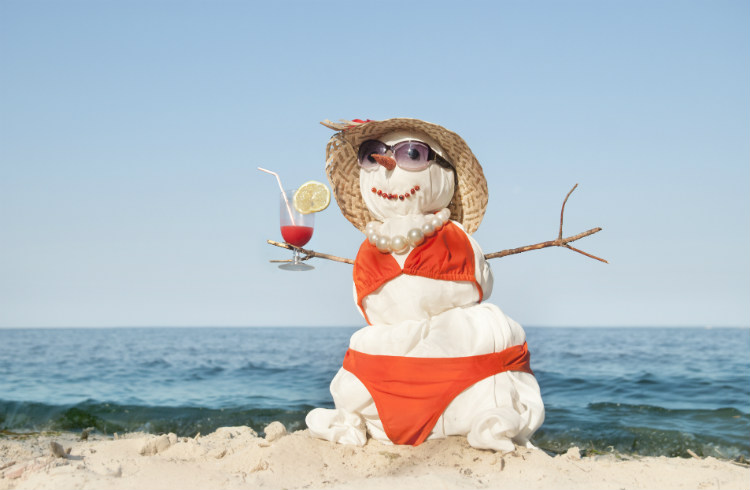
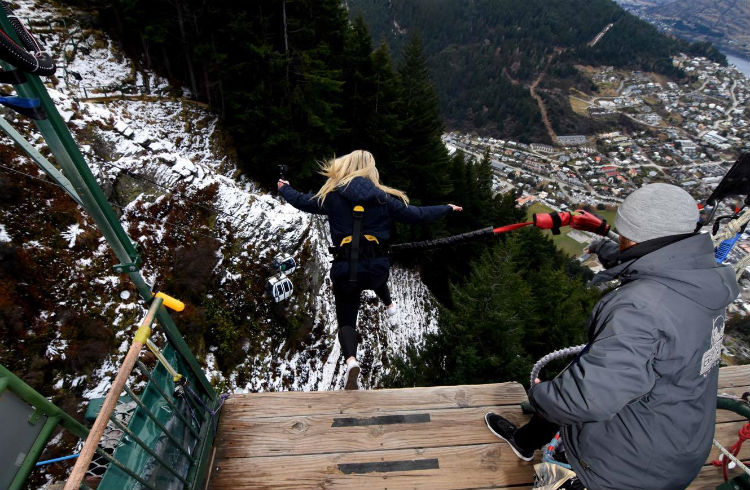
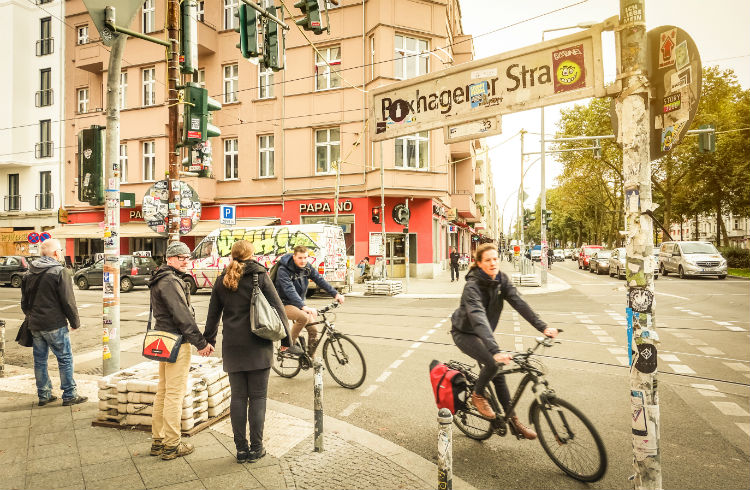
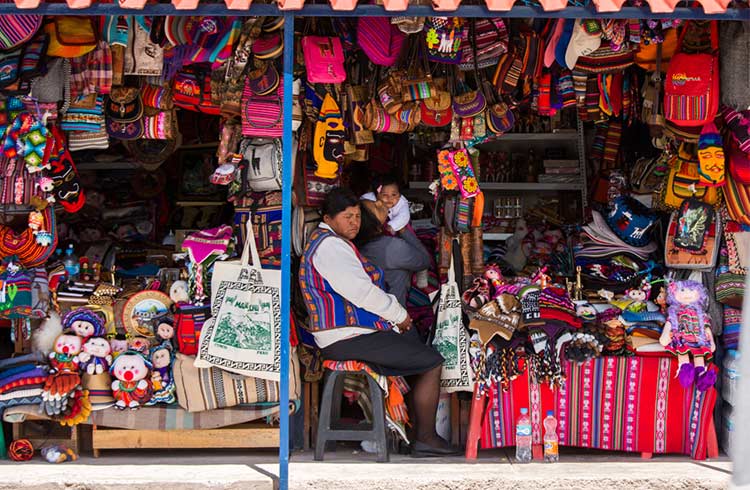
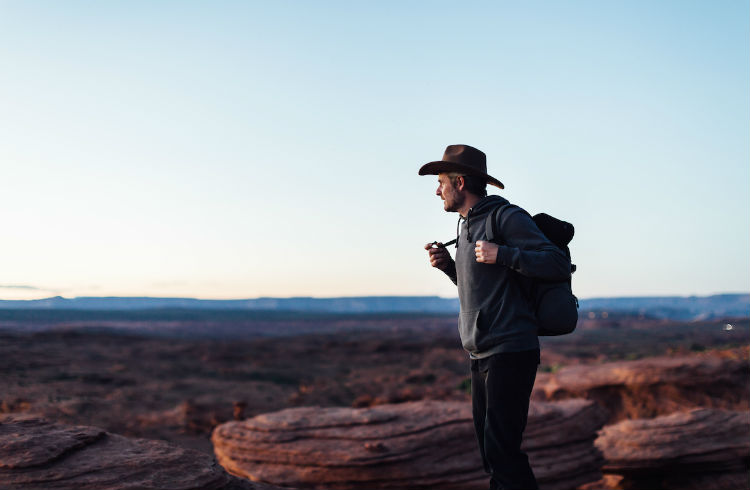
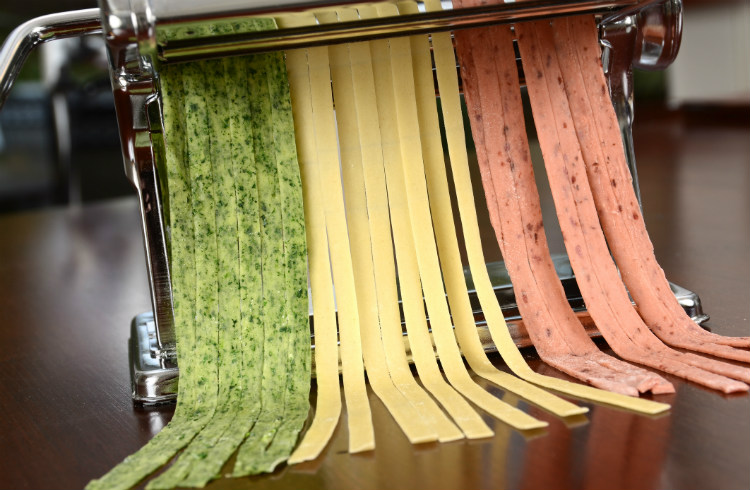
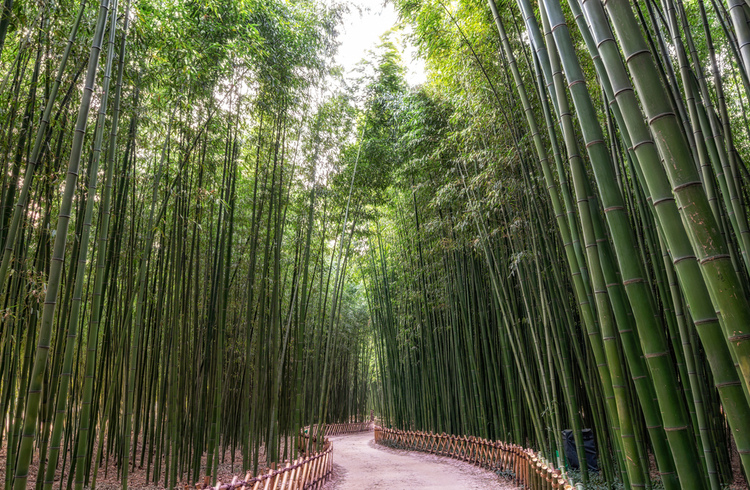
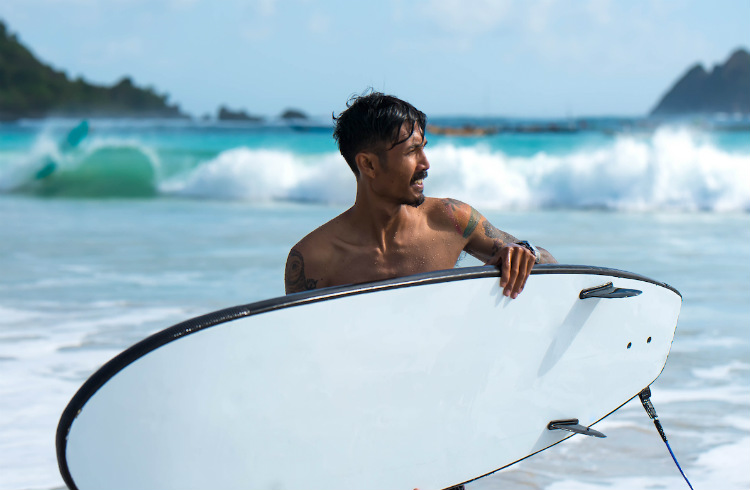
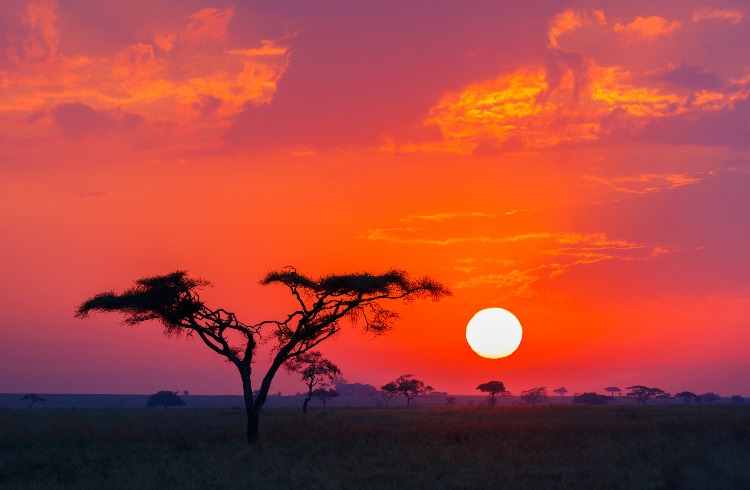
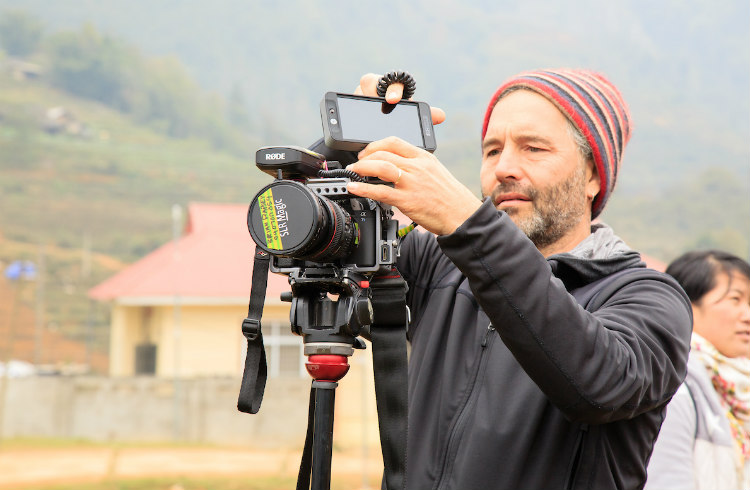
No Comments